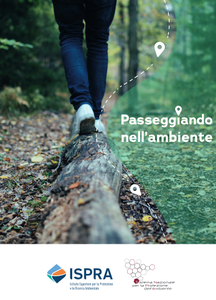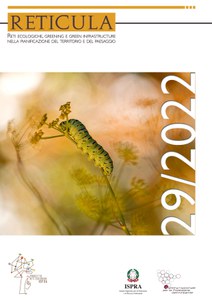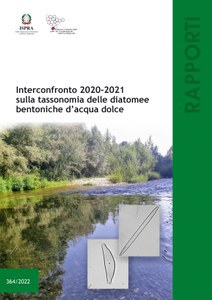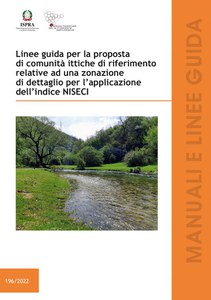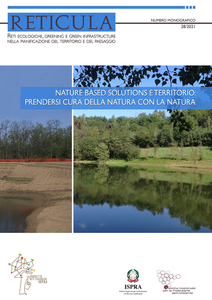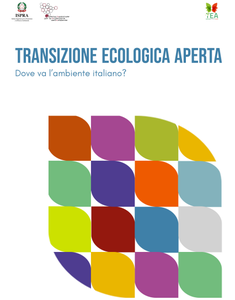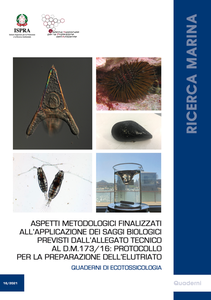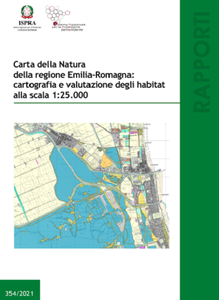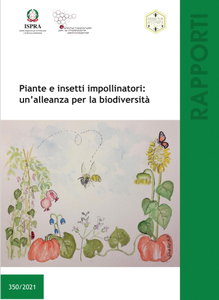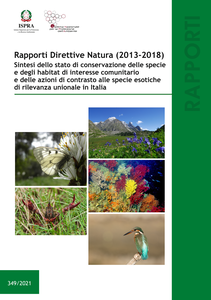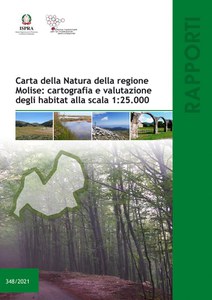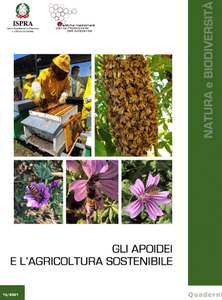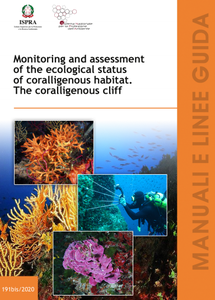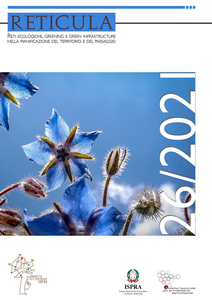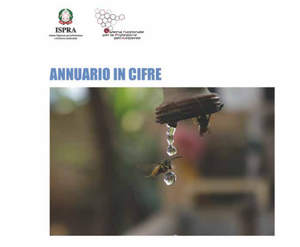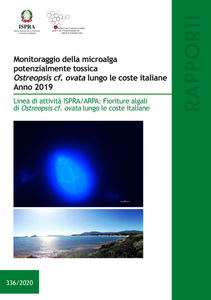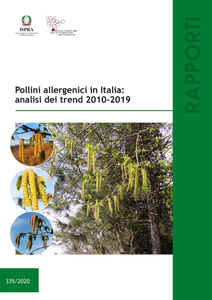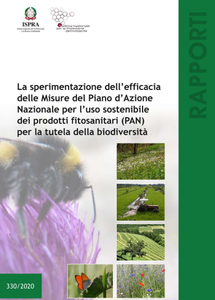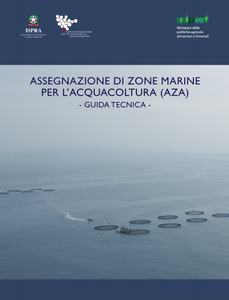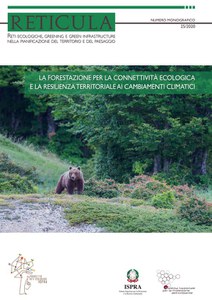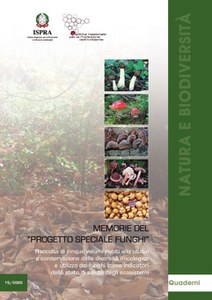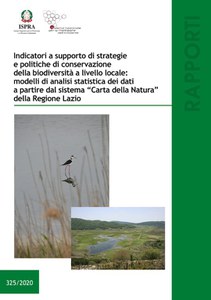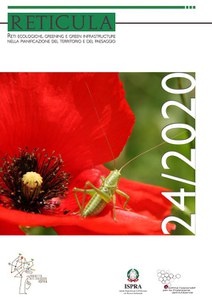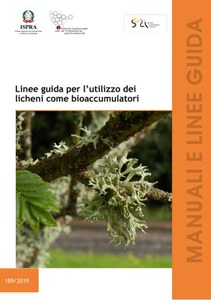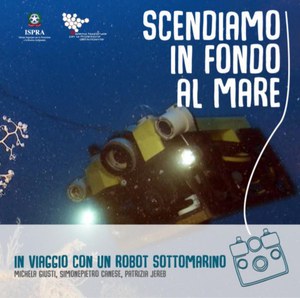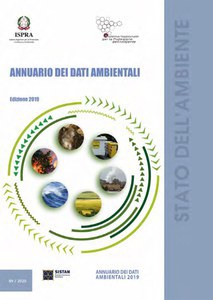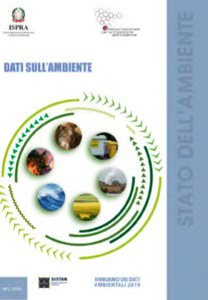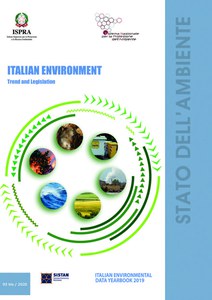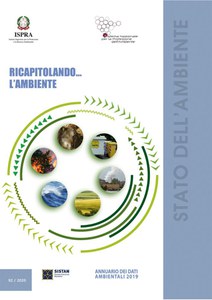Publications
Walking through the environment
Reticula n. 29/2022
Intercomparison on the taxonomy of freshwater benthic diatoms (2020-2021)
In the continuation of a collaboration between the Environmental Agencies of Friuli Venezia Giulia and Lombardy, the University of Turin and ISPRA (Italian Institute for Environmental Protection), this report contains the results of an interlaboratory comparison aimed at assessing the performance of the participating laboratories in the taxonomic identification of benthic diatoms in surface water bodies
Application of the NISECI index: guideline for the proposal of reference fish communities related to a detailed river zonation.
This Manual explains the criteria and methods for carrying out the detailed zonation process in river water bodies, and provides indications for the correct definition of the expected local fish communities and alien species to be used in the NISECI calculation.
Reticula n.28/2021. Monographic number
Nature-Based Solutions and territory: take care of Nature with Nature
Open Ecological Transition
Methodological aspects for the application of bioassays included in the technical annex to the Environment Ministry Decree 173/16: protocol for the preparation of elutriate.
This booklet describes the methodological protocol to be used in the preparation of elutriates for the execution of bioassays on coastal marine sediments to be managed. The main aim is to minimize possible interference related to the techniques and methodologies used in the various public and private laboratories, as well as the need to comply with adequate chemical-physical conditions of the matrix to be tested that are closer to the field of application, in particular for those chronic/long term bioassays referred as "third type" in the Technical Annex of the Environment Ministry Decree 173/2016.
Carta della Natura (Map of Nature) of the Emilia-Romagna Region: habitat cartography and assessment at 1:25,000 scale
This report describes the activities and methodologies that led to the creation of the 1:25,000 scale Map of Nature of the Emilia-Romagna region, which is now published.
Plants and insect pollination: an alliance for biodiversity
The pollination of flowering plants by animals represents an ecosystem service of great value for humanity, both from an economic point of view and for the benefit of spontaneous and cultivated plants.
EU Nature Directives Reporting (2013-2018)
An overview of the conservation status of species and habitats of community interest and of measures to combat alien species of Union concern in Italy
“Carta della Natura” of Molise: mapping and assessment of habitats at the scale 1:25.000
This technical document shows the activities and methodologies adopted to realised the “Carta della Natura” of Molise at 1:25.000 scale.
Bees and sustainable agriculture
Animal pollinators, in particular bees, are of great importance in supporting structure, composition and functioning of natural and semi-natural habitats, including farmlands and peri-urban contexts. Almost 90% of the wild plants that bloom and over 75% of the main existing agricultural crops require animal pollination in terms of production, yield and product quality. Managed as well as solitary bees thus guarantee fundamental support for human society and activities.
Monitoring and assessment of the ecological status of coralligenous habitat. The coralligenous cliff (English version)
Reticula n. 26/2021
The Yearbook in figures
Environmental Data Yearbook 2020
Monitoring potentially toxic Ostreopsis cf. ovata along the Italian coasts. Year 2019
Working Programme ISPRA/ARPA: Ostreopsis cf. ovata blooms along the Italian coasts
Allergenic pollens in Italy: trends 2010-2020
The Report describes the status of the presence of the main allergenic pollens and the Alternaria spore in Italy in 2019 and their air concentration trends, measured, from 2010 to 2019, by the monitoring stations of the POLLnet-SNPA network and by the Aerobiological Monitoring Center of Tor Vergata (Rome).
The experimental assessment of the effectiveness of the measures provided for by the National Action Plan for the sustainable use of plant protection products (NAP)
ISPRA 330/2020 report highlights the results of an experimental assessment of the effectiveness of the measures provided for by the National Action Plan for the sustainable use of plant protection products (NAP - defined according to EU Directive2009/128/CE) aimed at protecting biodiversity.
Allocated Zones for Aquaculture (AZA).Technical Guide
RETICULA n. 25/2020 Monographic Number
Forestation for ecological connectivity and territorial resilience to climate change
Memoirs of the "Fungi Special Project"
This collection “Memories of the Fungi Special Project” is part of the ISPRA Notebooks dedicated to Nature and Biodiversity. It contains five volumes whose texts were elaborated, drafted and concluded before August 2019
Biodiversity conservation strategies and policies at local level: statistical analysis models from the "Carta della natura" system of the Lazio Region
Reticula n. 24/2020
Guidelines for the use of lichens as bioaccumulators - Italian version
Let’s go down to the bottom of the sea – Travelling with a submarine robot
The book "Let's go down to the bottom of the sea - Travelling with a submarine robot ", addressed, above all (but not only), to children was inspired by the desire to tell them, in a simple and nice way, some aspects of the research activity at sea: this is how Pollux, a small underwater robot, was born. Together with his friends Astrea (the research vessel) and EM2040 (the echosounder), Pollux tells about some of the explorations carried out on the beautiful seabed of our "Blue Planet".
Environmental Data Yearbook - Edition 2019
Data on the Environment
Environmental Data Yearbook 2019
Environmental Data Yearbook in numbers
Environmental Data Yearbook 2019
Italian environment.Trend and Legislation
Environmental Data Yearbook 2019
Summarising...the environment
Environmental Data Yearbook 2019

